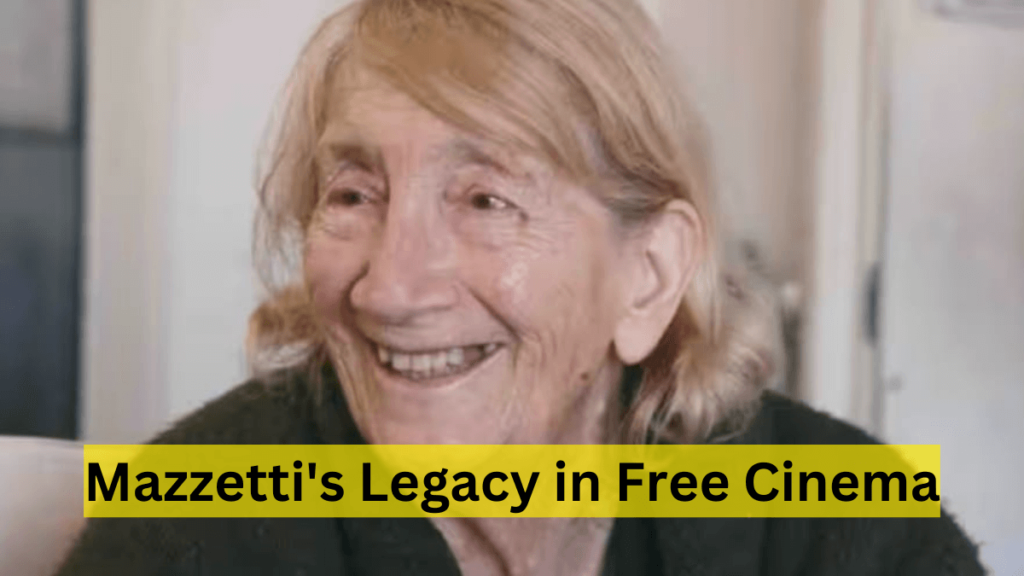
Italian artist, writer, and filmmaker Lorenza Mazzetti’s short film “Together” had a major impact on the UK’s important Free Cinema movement in the middle of the 1950s. Before she died in 2020, she returned to Italy, where she lived out the remainder of her days writing memoirs and novels and managing a puppet theater in Rome. Despite the small number of her films, she was one of the very few female directors working in Britain in the 1950s, which made her a symbol for scholars and filmmakers interested in exposing untold tales.
This was also confirmed by Brighid Lowe, an associate professor at the Slade School of Fine Art, who had met Mazzetti as a young artist when she entered there in 1951. Mazzetti had shown her “genius” to William Coldstream, the school’s director and painter, in a manner reminiscent of Oscar Wilde. Lowe’s five-year film effort, dubbed a “special project in her life,” drew primarily from an interview she had with 90-year-old Mazzetti. In this conversation, Mazzetti discusses her recollections of her time in London and the sources of inspiration for her work with fellow academic and critic Henry K. Miller. She now has no living witnesses left except for this interview.
It becomes evident that Mazzetti’s horrific wartime experiences had a lasting impact on her. Her Jewish uncle Robert Einstein took his own life in 1944 while in hiding, but not before the SS murdered his family in 1944. Living with the Einsteins in Tuscany at the time, Mazzetti and her twin sister Paola were probably spared because their last name (accurately) indicated they were not Jewish. She “ran away” from this tragedy, as Mazzetti put it, and made her home in a war-torn London. She made two short films that were inspired by Franz Kafka while attending art school, thanks to her success in obtaining camera gear and film stock. Afterward, she created “Together” with funding from the BFI’s Experimental Film Fund, which starred Eduardo Paolozzi and Michael Andrews as deaf brothers living in London’s East End.
“Together” was the pinnacle of Mazzetti’s film career, looking back. It screened with films by Lindsay Anderson, Karel Reisz, and Tony Richardson at the National Film Theatre’s inaugural Free Cinema event. Mazzetti returned to Italy, but several of her peers went on to have notable careers as directors. Following the underwhelming reception to her Italian feature film “I Cattivi Vanno in Paradiso” (1959), which she co-directed with Denis Horne, she turned her artistic energies toward composing a narrative about the terrifying experiences of her early years. Mazzetti never stated that sexism destroyed her film career, but it’s difficult to deny that it had some impact given that she was the only female member of her colleagues in Free Cinema. Nevertheless, Mazzetti lived a colorful and energetic life till the very end.

